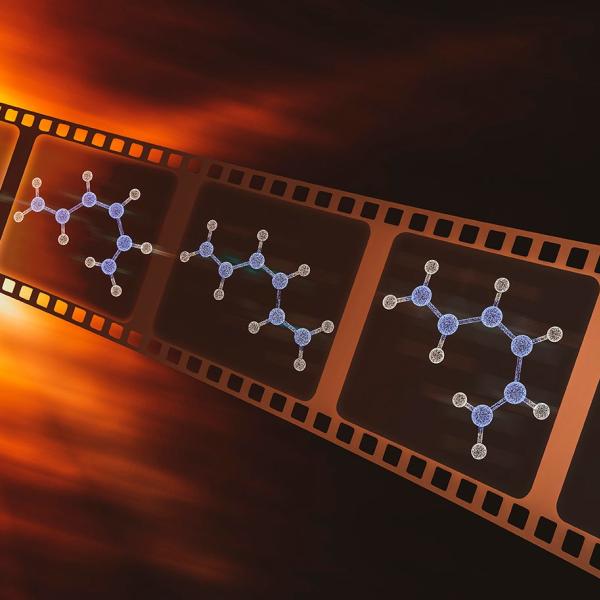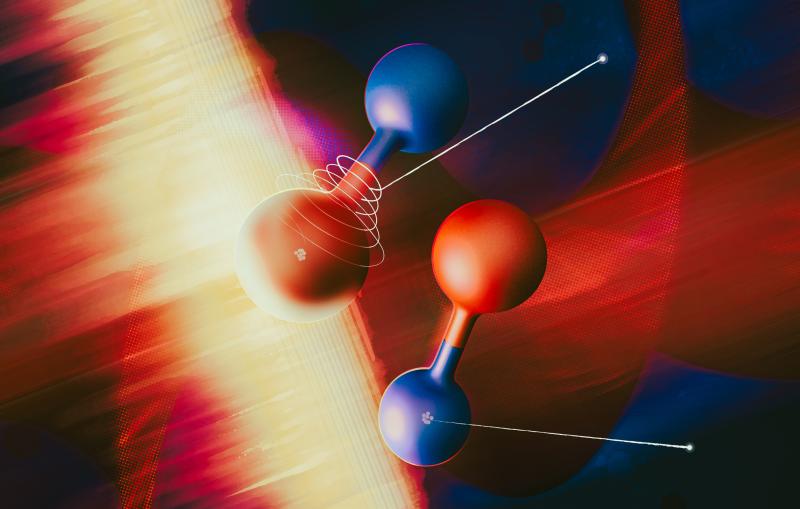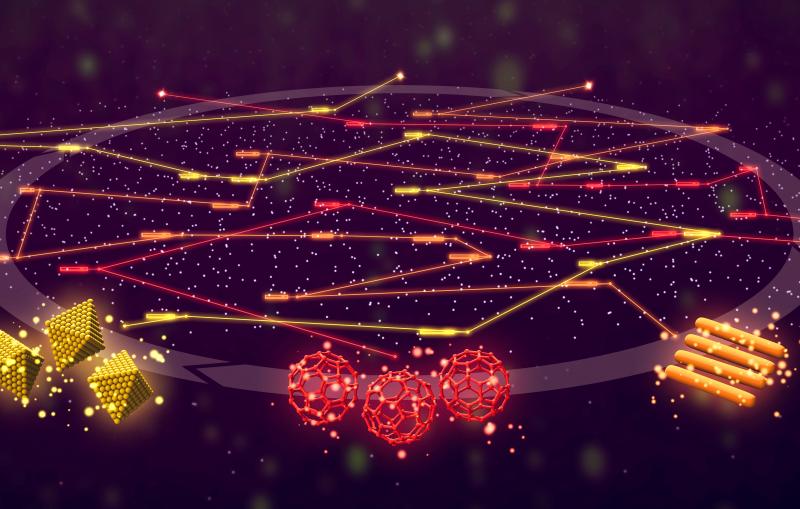most molecular movies are made using a
pump probe technique involving two
energetic pulses the first pulse is the
pump and kicks off the reaction being
studied a precisely delayed probe pulse
creates a snapshot by altering the time
separation between the pump and probe
scientists create frames of a movie of
the reaction the pump pulse shown in
blue is typically an optical laser that
instantly sets the molecule in motion
the probe pulse shown in red uses x-ray
light or electrons to allow for
atomic-scale resolution the resulting
molecular movies show how molecules
behave at their natural scales of size
and time moving in quadrillions of a
second
[Music]






